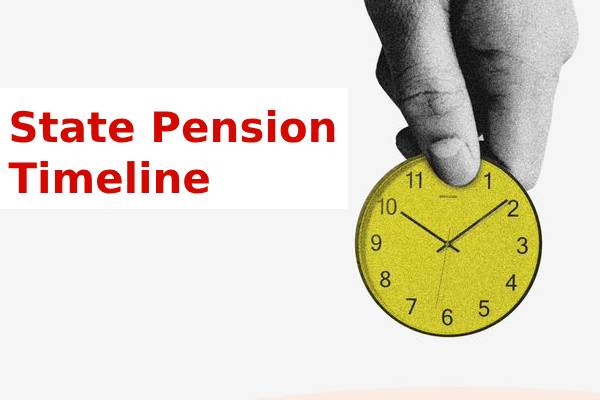Taking Your Pension Abroad in a Tax Efficient Way

For UK nationals dreaming of retiring under foreign skies, the logistics of transferring a lifetime’s savings, including pensions, to another country can be daunting. A crucial aspect of this transition involves managing your pension in a tax-efficient manner.
The key takeaways from this article should be:
- Explore QROPS: For UK nationals moving abroad, transferring your pension into a Qualifying Recognised Overseas Pension Scheme (QROPS) can offer tax efficiency, flexibility, and potentially better suited investment options.
- Understand Tax Treaties: Familiarize yourself with double taxation agreements between the UK and your new country to avoid paying tax on the same income in both countries and possibly benefit from lower tax rates.
- Consider Withdrawal Strategies: The method of pension withdrawal (lump sum vs. regular income) can significantly impact your tax situation in both the UK and your new country of residence.
- Seek Professional Advice: Given the complexity of tax laws and pension regulations across borders, obtaining guidance from a financial advisor or tax consultant is crucial for a tax-efficient retirement abroad.
Understanding UK Pension Schemes and Overseas Transfer Options
The UK offers several pension schemes, including the State Pension, private pensions, and workplace pensions. When moving abroad, the primary concern for many is whether they can transfer their pension and how it will be taxed.
A notable option is the Qualifying Recognised Overseas Pension Scheme (QROPS). Introduced in 2006, QROPS allows UK pension holders to transfer their pension savings to a compliant pension scheme in another country.
This can offer tax efficiency, flexibility, and sometimes even investment options better suited to the pension holder's new circumstances.
Navigating Tax Treaties Between the UK and Your New Country
The UK has double taxation agreements (DTAs) with many countries, designed to ensure that you don't pay tax on the same income in both countries. Understanding how these treaties affect your pension is paramount.
Some DTAs stipulate that pensions can only be taxed in the country of residence, potentially offering significant tax savings if you move to a country with lower tax rates.
The Implications of Withdrawal Methods
How you withdraw your pension can significantly affect your tax situation. Lump-sum withdrawals might be tax-free in the UK under certain circumstances, but could be taxable in your new country of residence.
Regular pension income may also be treated differently. Understanding the tax implications of different withdrawal strategies is crucial to minimize your tax liability.
Tax Residency and Domicile Considerations
Your tax obligations in the UK depend not just on residency but also on your domicile status. UK expatriates moving abroad must establish their tax residency status in their new country.
It’s important to sever as many ties as possible with the UK to avoid being considered a UK resident for tax purposes. This involves more than just spending a certain number of days outside the UK; your intentions, home ownership, family location, and economic interests are all considered.
Exploiting Tax Advantages in Your New Country
Many countries offer tax incentives to attract foreign retirees. These can include reduced rates on pension income, exemptions for foreign income, or beneficial treaties with the UK.
Countries like Portugal, for example, have special tax regimes for non-habitual residents that can offer significant tax benefits for UK pension income. Investigating these opportunities can lead to substantial savings.
Professional Guidance Is Essential
Given the complexity of tax laws, treaties, and pension regulations, seeking professional advice is crucial.
A financial advisor or tax consultant with experience in cross-border pension transfers can provide bespoke advice, helping you navigate the intricacies of moving your pension abroad in the most tax-efficient manner.
Expert Opinion
James Harrington, a leading authority in international pension management, advises UK expatriates considering retirement abroad to focus on four key actions for a tax-efficient pension transfer:
Carefully Select a QROPS Provider: Look for jurisdictions with strong regulatory frameworks that have favorable tax treaties with the UK, potentially offering benefits such as lower tax rates on pension income and more investment flexibility.
Scrutinize Double Taxation Agreements: These agreements are crucial for minimizing your tax burden. Understand how the treaty between the UK and your chosen country of residence will affect the taxation of your pension income.
Plan Your Withdrawal Strategy Wisely: Deciding between lump-sum withdrawals and regular income can significantly impact your tax liabilities in both your home and host countries. Consider the tax implications of each method in your specific situation.
Understand Your Residency Status: Your tax obligations can change dramatically based on your residency status. It’s essential to know the rules in both the UK and your new country of residence to plan accordingly.
Harrington emphasizes, "While these steps provide a solid foundation for planning your pension transfer, the complexities of international tax laws and the unique nature of each individual's financial situation make it imperative to seek personalized advice. A qualified financial planner specializing in international retirement can offer tailored guidance, helping you navigate the intricacies of moving your pension abroad efficiently."
This expert insight underscores the importance of proactive and informed planning, coupled with professional advice, to ensure a smooth and tax-efficient retirement transition.



